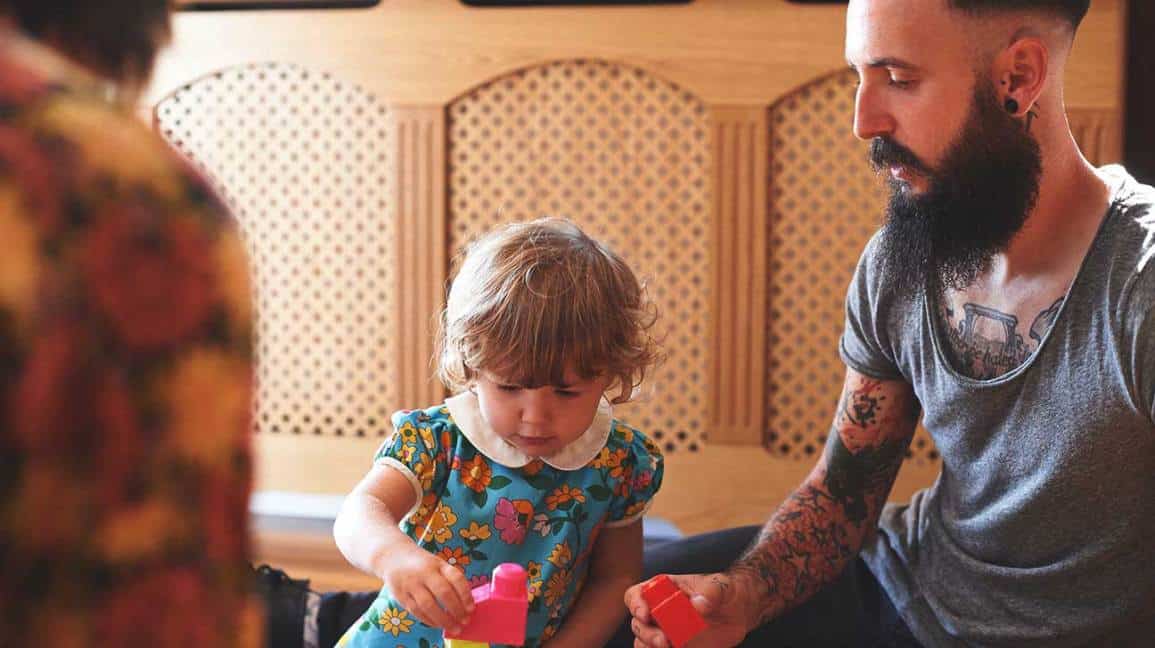Parents don’t need to shell out a ton of money to help with their child’s brain development.
You don’t need a formal class — or even money — to improve your baby’s brain development.
For parents who can’t or don’t want to participate in their local mommy-and-me classes, there are simple ways to interact with a child and help them developmentally.
If you’re looking for a few ideas to try with your infant, here are seven easy actions parents can take.

Stick out your tongue
“One easy-to-do activity that is easily embedded during most routines is sticking your tongue out,” said Elizabeth Criswell, an early childhood curriculum developer at the University of Minnesota’s Institute of Child Development. “You can model sticking your tongue out at different angles during diaper changes or playtime and allow space and time for your baby to do it back to you.”
The gesture is a helpful way to encourage children around the 3-month mark to practice tongue control, which can help with eating and speech development. It also enables parents to begin communicating with their infants.
Get on your belly
Tummy time is valuable for babies up through 6 months, not only to develop physical strength and coordination but as a great way to interact. Lie next to the baby or face them.
Share stories and let baby look in the mirror, or bring in toys to play with, said Rebecca Parlakian, senior director of programs at Zero to Three. The organization produces early childhood development materials and advocates for early learning.
Ignite the senses
Gather scraps of fabrics that have different textures and let baby explore them while you supervise. The scraps should be at least six inches by six inches long. Describe the fabrics to your child, as they are learning through their senses.
Exposing them to rich descriptive language now helps them develop a strong vocabulary later on, too, Parlakian added.
Go big — or little
Toddlers between 2 and 3 years old will love sorting various items around the house into piles of “big” and “little” items.
The game teaches children the words and concepts of big and little, helps them think about size, and supports early math skills, like the early stages of understanding measurement, Parlakian explained.
Listen in
Babies develop millions of neural pathways each day that are used throughout their lives to receive information, and music helps stimulate them.
The pathways help a child with language, cognitive, social, and emotional development, said Brenda Berdugo Limaldi, a Music Together instructor from New Jersey. She advises parents to expose the baby to different types of music that vary in tone and meter.
Sing together
When you sing, make sure to hold the baby close and exaggerate your mouth’s movements — especially when singing songs without words. Also, validate the baby’s responses by imitating him or her, as the positive reinforcement encourages more spontaneous sound and movement activity, which is how your baby learns.
Be sure to play fast and slow songs, sing loudly and softly, and use high and low notes. Rock and bounce to the beat of a song, too, Berdugo Limaldi said.
Play peek-a-boo
This game helps babies develop object permanence, which means they know an object exists even if they can’t see it. Both Berdugo Limaldi and Parlakian recommended it. A good age to start is when the baby is about 9 months old, though infants can enjoy it at a younger age as well.
The power of play
Interacting with a baby seems to be the key to cultivating positive brain development.
“The real value of playtime with children is that it helps them master their first and important task of the early years: building a strong relationship with their parents,” Parlakian said. “It’s this strong, secure bond that children take with them as a model of relationships all their lives, and helps them build friendships, cooperate with others, work on a team, and establish strong romantic relationships much later on.”
“While these activities are all free and can be easy to fit into your everyday routine, the value of parent-child play is immense. These moments give children opportunities to practice and, over time, master the critical cognitive, communication, and social-emotional skills they need to succeed in school and life,” she added.


